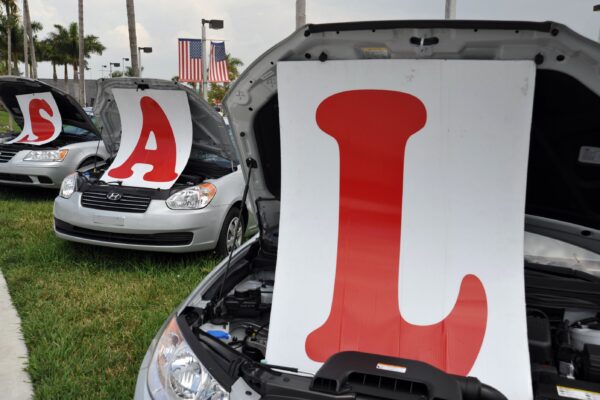
The newest trend on the sharing economy, car sharing is starting to claim its first corporate victims. The promise of Turo, Getaround, Hyrecar, and the likes of apparently profiting from renting (not sharing) a car or a fleet of cars has made more than one entrepreneur build businesses and car fleets through creative methods.
Companies have built fleets of tens, and even a handful of them, hundreds of cars in just a few weeks or months. Building such fleets has been possible in many cases by stacking credits and using personal guarantors. It’s apparently a smart way of getting cars, but a uniquely risky one.
These companies, known as Car Sharing hosts have started to realize that their creativity has been both, a blessing and a curse. A few of these hosts have even shut down their massive operations already, leaving dozens of cars unpaid, and in many cases repossessed by the banks. These companies have used a combination of two concepts: Credit stacking and Personal Guarantors.
Credit stacking is a quasi-legal way of obtaining many credits by applying for them simultaneously, getting approved, and buying as many cars as possible in a short period of time. The concept exploits the normal process of credit applications when shopping for a new car. When an individual wants to buy a car, he might visit one, two, three, or many car dealers before actually buying. Each dealer would make its best efforts for approving the buyer on the spot, and potentially having him drive off with a new car. The dealer would send a credit application to several banks. Each of them will be a credit inquiry, thus, each of those banks understands that the buyer might be shopping for the best rate and credit plan. Many queries in a few days do not raise a flag. Once the buyer selects a car, all the paperwork gets signed, and the documentation is submitted to the banks a few days (or weeks) later. After the deal is funded by a bank it might still take a few more days for the purchase and credit to be recorded with the credit reporting agencies. If our individual visits many car dealers in a matter of one to two weeks, he might be approved for anywhere between 8 and 25 cars, and be able to buy them before the credits start hitting his report. The problem here is that, even though this is not necessarily illegal, if the individual gets credits without the ability to pay them back, he could indeed be doing something even criminal.
Personal Guarantors serve as co-signers on a credit, loan, or lease. Companies with no credit history frequently make use of a shareholder or director’s credit history to guarantee either a working capital loan, a credit card, a line of credit, or even a car loan. The company might have the means to repay the obligation, and the personal guarantor would vouch for that, and would assume the obligation of repaying the trade line if the company defaults on its obligations.
When a company decides to do credit stacking and use personal guarantors for this purpose, again, while not illegal, as the company knows it currently has the means to repay its obligations, it assumes a very high risk and it makes the personal guarantor incur in a huge level of risk. If any situation makes the company’s financial position change adversely and default on one, many, or all of its credits, the personal guarantor could be liable for practically unpayable obligations. When the obligations are car loans or leases, the debt could be in the hundreds of thousands of dollars. A personal guarantor for those obligations might be forced to file for personal bankruptcy.
Some car sharing hosts have been negligently aggressive at not only stacking credits and using a personal guarantor but have replicated multiple times this scheme. By doing so and signing up multiple personal guarantors, a single host can bring onboard up to a couple of hundred cars in just a few months.
While the immediate risk of cosigning, or rather, personal guaranteeing many cars makes the potential outcomes obvious, getting many cars at the same time creates immediate roadblocks to the car sharing host’s future feasibility, including the sudden oversaturation of a market, the deploying of cars that have not been properly proven on a particular market, the creation of future liabilities that could not be covered by the cash flow generated (vehicle registration renewals, end of lease costs, vehicle downtime costs, recalls, depreciation, etc.), among others.
Adequately planning a fleet’s growth, a clear understanding of the car sharing hosts’s market, and profound financial and taxation knowledge of car fleets and car rentals would show how risky these practices are, and would provide the tools to the company’s owner on how to and when to build a fleet. This planning and knowledge could also avoid bankruptcy and legal problems for the company, its owners, and personal guarantors.